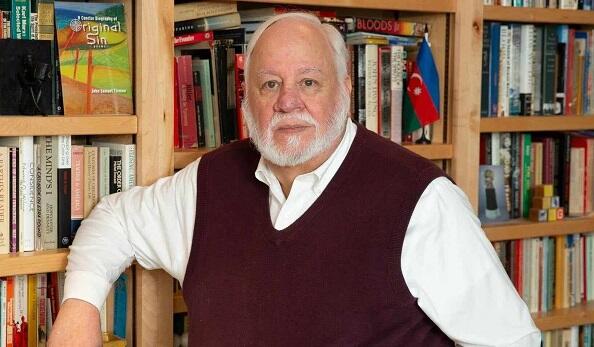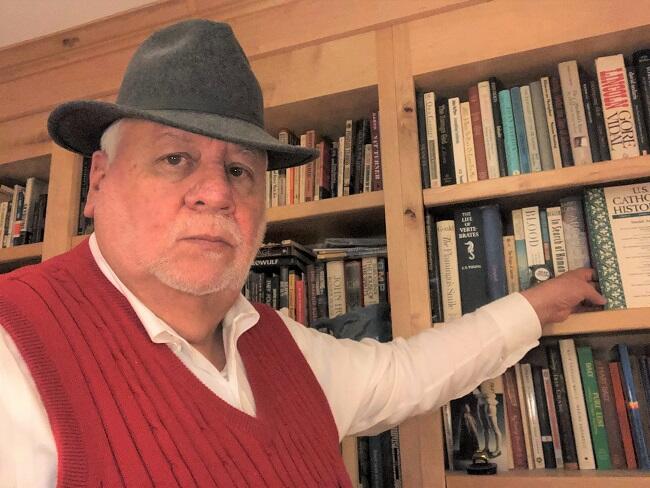Axar.az presents an article, “Politics And Psychology” by John Samuel Tieman.
I love the “Oxford English Dictionary”, the “OED” as it's commonly called. When I was a young man, I'd read it the way others read a novel. There's a story about the dictionary I love, really the story behind the story. Compiling any given word was a meticulous, laborious and voluminous process. The main editor, James Murray (1837 – 1915), sometimes received 1000 contributions a day. Many of Murray's contributors were not personally known to him. W. C. Minor was a surgeon and military officer. He was American. His return address was in Berkshire, not too far from Oxford. When Murray decided to visit Minor one year, he discovered that his contributor was a murderer suffering from what we now call schizophrenia. He was confined to an asylum. Murray said of Minor's contributions that "we could easily illustrate the last four centuries [of the development of the language] from his quotations alone".
I tell this tale for three simple reasons. One, mentally ill people can make great contributions. Two, nothing is really gained by hiding mental illness. Three, how do we create communities in which folks can reach their highest potential?
We know more now than we have ever known about the human mind. But in politics, our use of that knowledge is limited. Our nation is founded upon Enlightenment ideals. It's pre-Freudian. Perhaps we need a Second Republic, a republic that takes into account, in a word, psychology. We need to talk about mental health, our own, others', and ask questions about what constitutes a mentally healthy community.
It's easy to say we should guard ourselves against destructive mental illnesses that are maladaptive, that lead, for example, to hostility and expressions of contempt. I'll have more to say about that in a moment. That said, especially now, our nation needs strength, confidence. It needs civic well-being that helps the individual and the collective. It needs programs that promote collective growth through mental health practices embedded in community development and sustainable change. Politics should be a field that leads a person to their highest potential.
Of course, there is aberrant behavior. In every city council, in every state house, in every legislative body, folks can tell of disruption because of someone clearly crazy. Generally, it's just simply annoying, albeit hostile and contemptuous. But, at other times, the crazy person is elected president. Responses to mental illness can be varied. I am not saying such folks need to be stifled or controlled, although in extreme cases that may be the case. I am saying that, along with one mental process, meaning the Enlightenment's emphasis on reason, we also need to consider the fullness of the human psyche.
Often, when folks think of psychology, they think of abnormal psychology. That assuredly is something to consider. But a person who displays the characteristics of a malignant narcissist is something very different than a person who displays other forms of mental illness. A malignant narcissist would be dangerous in politics, and probably should be excluded from Office. Yet folks with mental illness can find ways to contribute. Abraham Lincoln suffered from overwhelming depression, but he was a pretty good president. James Madison, John Quincy Adams, Franklin Pierce and Calvin Coolidge may also have suffered from depression. Thomas Jefferson, Ulysses S. Grant, and Woodrow Wilson seem to have suffered anxiety disorders. Teddy Roosevelt suffered from a debilitating masculinity. Yet they each found ways to contribute. Mental illness is not a static state. Given the right circumstances, folks can contribute. But how do we construct those circumstances?
Abnormal psychology is only a part of our understanding. We also have some understanding of how people find meaning in their lives, how people find happiness and resilience through institutions and communities. Rather than asking what's wrong, psychology can also ask what makes life worth living? How do we cultivate strength and virtue?
When folks read about psychology, they are often inclined to ask about how things go wrong. Perhaps we need to give more thought to Max Bialystock in “The Producers” when he asks, “Where did we go right?” What produces a functional community? How do we build a productive legislature? How do we build a community wherein each person has every opportunity to be self-actualized, to reach their highest potential?





















































